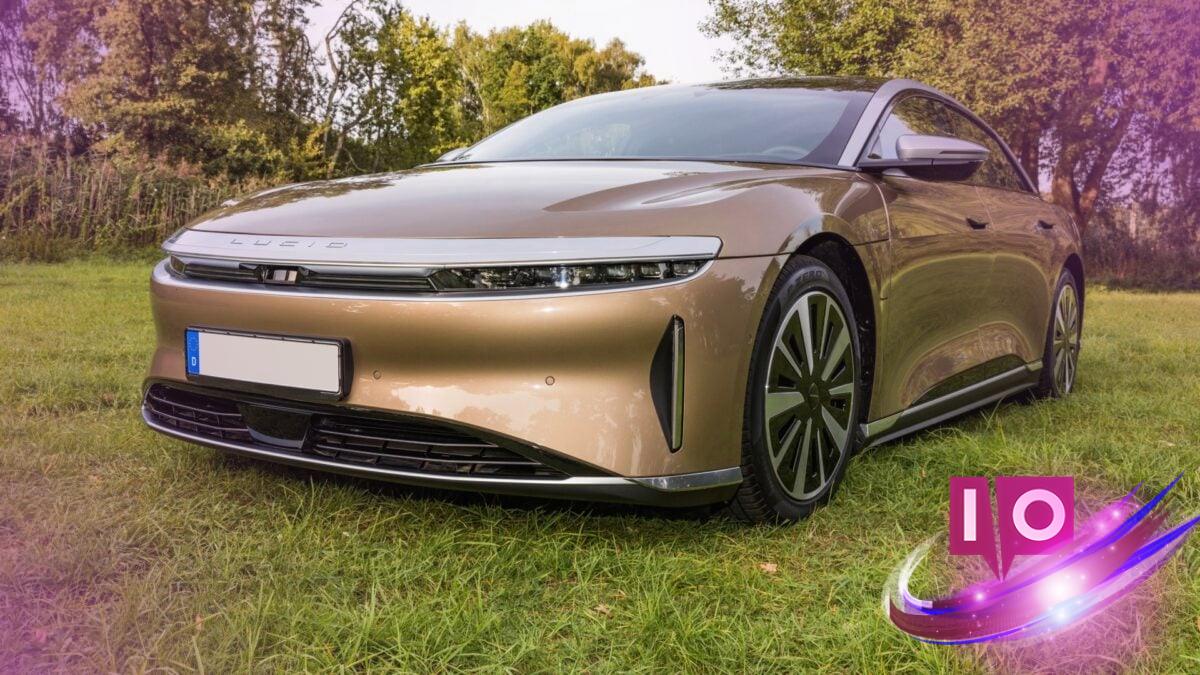The electric vehicle market is in a state of flux, and Lucid Motors (LCID) is feeling the heat. This week, the beleaguered company announced a reverse stock split aimed at consolidating shares to meet NASDAQ’s minimum trading price requirement of $1. Lucid makes it clear that this move is not an attempt to avoid delisting.
As of Friday, Lucid’s share price had plummeted over 96% from its peak of $64.86 in February 2021. The stock has fallen 48% year-over-year and 31% just this year. One analyst even cut their price target for Lucid by 30% following the announcement of the split.
Stifel analyst Stephen Gengaro noted, “LCID’s 2Q25 revenue slightly exceeded our expectations, but gross profit and adjusted EBITDA did not meet projections,” which led to a price target reduction from $3 to $2.10. He expressed confidence in the technology behind the company, particularly the Air and Gravity models, but cautioned that additional capital will be necessary in the coming years as they await clarity on sales and the rollout of new midsize vehicles.
Wall Street had speculated that the reverse stock split was a last-ditch effort to avoid delisting, a claim that Lucid firmly rejected. Nick Twork, Vice President of Communications, clarified that this move is designed to expand accessibility for institutional investors while also reducing trading volatility. “It is not about avoiding delisting,” he stated. CFO Taoufiq Boussaid echoed this sentiment, asserting that the split is a targeted strategy for attracting long-term investors and aligning share prices with the company’s growth trajectory.
What’s Lucid’s Long-Term Strategy?
Despite these strategic maneuvers, Lucid still faces fundamental challenges. Founded in 2014 by ex-Tesla engineer Peter Rawlinson, the company aimed to compete in the luxury EV market with its flagship Air sedan, designed to rival the Tesla Model S. Initial production targets were ambitious, aiming for 20,000 vehicles in 2022, 49,000 in 2023, and 90,000 by 2024. Yet they delivered just over 10,200 vehicles in 2024.
However, Lucid has recently ramped up production. In Q2 2025, they delivered 3,309 vehicles and produced 3,863, bringing total deliveries for the first half of the year to 6,418. This marks a 38% year-over-year increase and a sixth consecutive quarterly delivery record. Remarkably, the Lucid Air was the best-selling luxury EV sedan in North America during this period, outpacing competitors like the Porsche Taycan and Tesla Model S.
With approximately $4.86 billion in liquidity, Lucid is positioning itself to ramp up production while navigating existing challenges. Yet their financials tell a complex story: revenue surged 36% to $808 million in 2024, but net losses deepened to $3.1 billion, equating to roughly €279,000 per vehicle sold. Lucid disputed this figure, arguing that investments are primarily aimed at future growth rather than current sales.
Can Lucid Compete?
To remain competitive, Lucid has implemented multiple price cuts for the Air sedan, reducing prices from about $80,000 to roughly $71,400. Even with around $4.8 billion in available liquidity and plans to expand manufacturing facilities in Arizona and Saudi Arabia, the company is treading water against fierce competition from Tesla and others. The anticipated launch of the Gravity SUV has yet to squarely hit the market.
Twork noted the ongoing support from Saudi Arabia’s Public Investment Fund, which holds majority ownership. “This backing provides both stability and long-term investment security,” he explained.
Analysts predict that Lucid will achieve modest growth in the near term, with 2025 revenue expected to reach €1.2 billion, reflecting a 61% increase. Yet, with a projected market cap of just €6 billion, the company’s valuation falls well short compared to Tesla, which boasts over €920 billion.
If Lucid successfully implements its growth strategy, it could see its stock value surge. However, the reverse stock split may only offer temporary relief in the face of ongoing financial volatility and fierce competition.
Lucid Motors’ stock performance indicates larger issues surrounding the future of electric vehicle demand and market dynamics. Recently, shares recoiled sharply as industry analysts raised red flags about rising production costs, intensifying competition, and a potential slowdown in consumer interest.
Amid high hopes for innovation and a luxury expansion, recent data underscores that the company may be entering a more treacherous landscape than expected. Persistent supply chain issues and questions about electric vehicle market growth are weighing heavily on investors.
Considering the intense competition in the EV space, Lucid’s future profitability is closely monitored by stakeholders.
Could Lucid Motors compete effectively in the saturated EV market?
The intense competition and ongoing challenges make this uncertain, but the company’s strategic moves are aimed at solidifying its position.
What does Lucid’s financial health look like going forward?
Lack of clear profitability coupled with rising costs could pose hurdles, though ongoing investor support offers some cushion.
How is Lucid planning to scale production effectively in the future?
With significant capital available, Lucid is focused on ramping up its manufacturing processes, particularly for the Gravity SUV and a new mid-size vehicle.
Is the reverse stock split a sign of impending trouble for Lucid?
While often perceived negatively, the company asserts that this move is strategic rather than a sign of crisis.
If you’re keen to understand more about the dynamics of the EV market and Lucid Motors’ place within it, keep exploring our related articles for deeper insights. Learn more at Moyens I/O.
